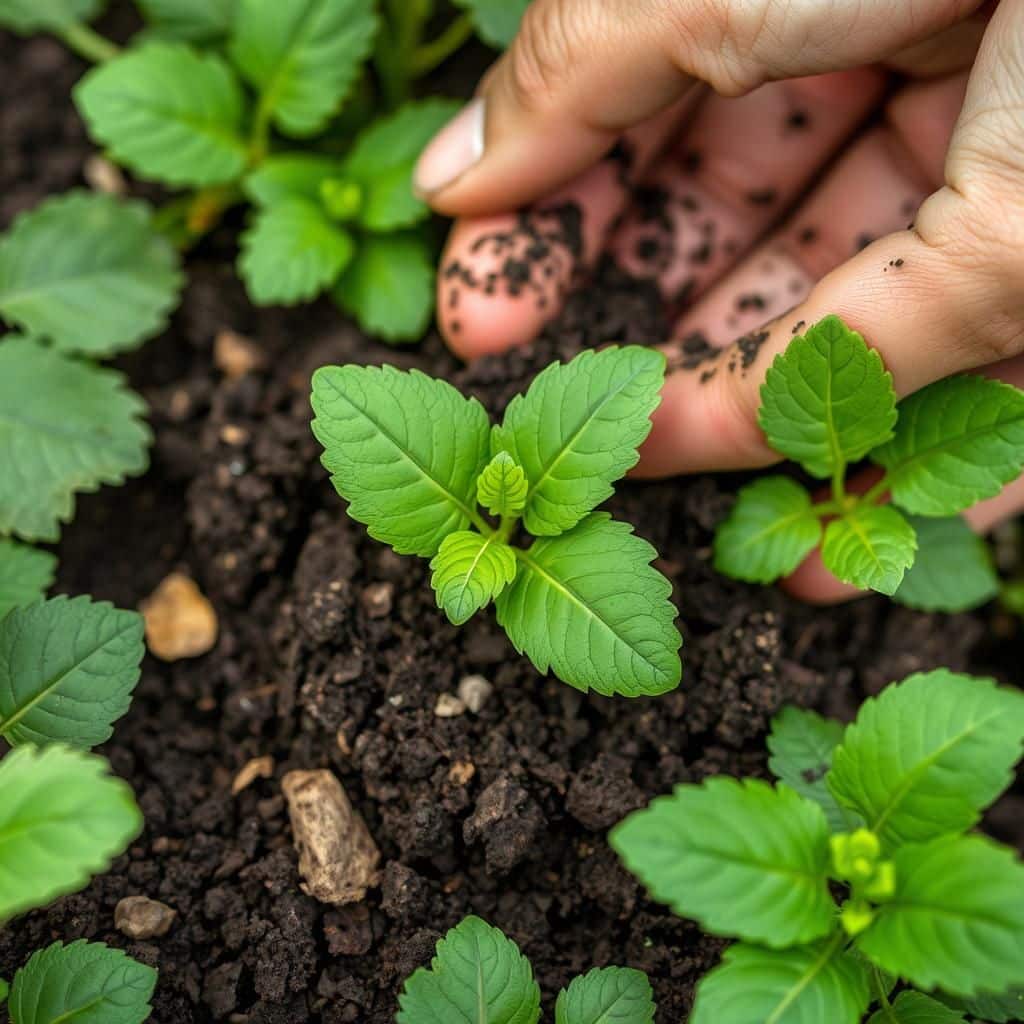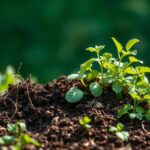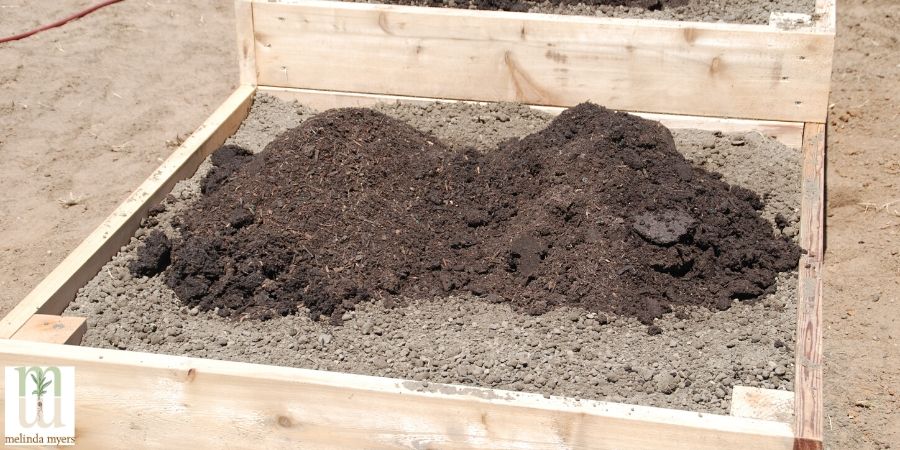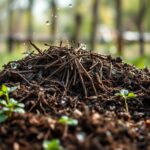Is Compost Better Than Topsoil? Unveiling the Benefits for Your Garden

In the world of gardening, the debate between compost and topsoil often evokes passionate opinions from green thumbs. As every gardener knows, healthy soil is crucial for nurturing plants and ensuring bountiful harvests. But is compost truly superior to topsoil in meeting these needs? This article delves into the unique benefits of compost, exploring its nutrient content, microbial activity, and benefits for soil structure. By comparing compost and topsoil, we aim to provide gardeners with the knowledge to make informed decisions that can enhance their garden's vitality and sustainability. Discover how choosing the right soil amendment can transform your gardening experience.
Is Compost Better Than Topsoil?
Compost is often regarded as a superior option compared to topsoil for various reasons, particularly in enhancing soil health and promoting plant growth. Unlike conventional topsoil, which may lack essential nutrients or organic matter, compost is rich in beneficial microorganisms, nutrients, and organic compounds that improve soil structure and fertility. It enhances moisture retention, encourages healthy root development, and contributes to the overall ecosystem of the soil. Furthermore, compost promotes sustainability by recycling organic waste, making it an environmentally friendly choice for gardeners and farmers alike.
What is Compost?
Compost is a nutrient-rich organic matter that is produced through the decomposition of kitchen scraps, yard waste, and other organic materials. The process involves microbial activity, where bacteria, fungi, and other decomposers break down the organic material over time. This transformation results in a dark, crumbly substance that is packed with nutrients such as nitrogen, phosphorus, and potassium, which are essential for healthy plant growth. Compost not only enhances the fertility of the soil but also helps in improving its structure, making it a valuable amendment for gardens and agricultural fields.
What is Topsoil?
Topsoil refers to the uppermost layer of soil that is typically rich in organic matter, minerals, and microbes. This layer is crucial for plant growth as it contains the majority of a plant's root system. Topsoil varies in depth and composition depending on the region and can be stripped away due to various factors like erosion or construction. While it serves as a foundation for growing plants, its quality can significantly vary, affecting how well it provides the necessary nutrients and moisture retention compared to compost, which is specifically designed to boost soil health.
Benefits of Using Compost
The benefits of using compost are numerous, as it significantly enhances soil fertility and structure. Compost amends soil with organic matter, aiding in soil aeration and moisture retention, which are essential for optimal root growth. Additionally, its rich microbial content helps suppress plant diseases and pests, improving overall plant health. Moreover, compost is a sustainable solution as it diverts organic waste from landfills and transforms it into a productive resource for gardeners and farmers, promoting a circular economy and reducing carbon footprints.
Drawbacks of Topsoil
While topsoil is essential for gardening, it does have certain drawbacks. One of the main issues is that it may be depleted of nutrients due to over-farming and poor land management practices, leading to a lower soil quality. Topsoil can also be prone to erosion, resulting in loss of valuable fertility over time. Furthermore, unless it is amended with organic matter like compost, topsoil may often lack the microbial life needed for thriving plant ecosystems, making it less effective than compost for holistic soil management.
When to Use Compost Over Topsoil
Choosing compost over topsoil is ideal when looking to improve soil health in existing gardens, enhance soil fertility, or remediate degraded soil. Compost can be particularly beneficial when establishing new garden beds or when planting in poor quality soils that lack nutrients or organic matter. It’s often recommended when preparing the soil for vegetable gardens, flower beds, or landscaping projects, providing a significant boost to the proliferation of healthy plants. In contrast, topsoil may be more appropriate for general filling or leveling needs but should ideally be mixed with compost for optimal results.
| Aspect | Compost | Topsoil |
|---|---|---|
| Nutrient Content | High in nutrients and organic matter | Varies, often depleted of nutrients |
| Soil Structure | Improves soil structure and aeration | Can compact and may need amendment |
| Microbial Life | Rich in beneficial microbes | Less microbial diversity |
| Moisture Retention | Increases moisture retention | Varies, might require additional amendments |
| Sustainability | Promotes recycling of organic waste | Raw material may be non-renewable |
Should I put compost or topsoil on my lawn?


When considering whether to put compost or topsoil on your lawn, several factors come into play. Both materials have their advantages and can contribute positively to lawn health, but their purposes may differ.
Benefits of Compost
Compost is a rich, organic material that can significantly enhance the nutrient content of your lawn’s soil. It improves soil structure, enhances water retention, and promotes microbial activity.
- Nutrient-Rich: Compost provides essential nutrients like nitrogen, phosphorus, and potassium, which are crucial for grass health.
- Soil Structure Improvement: It improves soil aeration and drainage, allowing roots to access air and water more easily.
- Microbial Activity: The organic matter in compost fosters beneficial microbes that help break down nutrients for plant uptake.
Benefits of Topsoil
Topsoil refers to the uppermost layer of soil and is usually rich in minerals and organic material, making it a great choice for leveling or laying new sod.
- Soil Leveling: Topsoil can help fill in low spots or create a level surface, which is essential for an even lawn.
- Quick Establishment: If you are seeding or laying sod, topsoil provides a good base for quick germination.
- Texture and Composition: It often contains a mix of sand, silt, and clay, providing good drainage and nutrient retention.
When to Use Compost
Using compost is ideal when you're looking to enrich existing soil. It is particularly beneficial in the following situations:
- When Revitalizing Thin Lawns: If your lawn is suffering from poor soil health, compost can quickly add vital nutrients.
- During Aeration: Applying compost after aerating your lawn can promote further nutrient penetration into the soil.
- For Organic Lawn Care: If you want to maintain an organic garden, compost is an essential component for healthy soil.
When to Use Topsoil
Topsoil is more appropriate when there is a need to amend the structure or appearance of the lawn. Consider using it in these cases:
- When Laying New Sod: Fresh sod requires a good layer of topsoil to ensure it can root effectively.
- For Leveling Your Lawn: If your lawn has uneven patches, topsoil can help create a more polished look.
- In New Lawn Establishment: When starting from scratch, topsoil provides the foundation needed for grass to thrive.
Combining Compost and Topsoil
In some cases, using both compost and topsoil can yield the best results. Combining the two can create a balanced environment for lawn health.
- Enhanced Nutrient Profile: The combination can provide both the structure from topsoil and the nutrients from compost.
- Improved Soil Texture: Mixing the two can lead to better soil drainage and aeration, benefiting grass roots.
- Support for Different Turf Types: This mixture can cater to the requirements of various grass types for optimal growth.
Should I buy garden soil or compost?

Deciding between buying garden soil or compost largely depends on your gardening goals, the condition of your existing soil, and the type of plants you intend to grow. Both materials serve different purposes in the garden, and understanding these distinctions can help you make an informed choice.
See also:
What is Garden Soil?
Garden soil refers to a mixture of minerals, organic matter, and nutrients that is suitable for planting. It is typically found in garden centers and is formulated to support a wide range of plants.
- Composition: Garden soil usually contains various components such as sand, silt, and clay, making it more structured for plant growth.
- Drainage: Good garden soil provides adequate drainage and aeration, preventing issues like root rot.
- pH Level: The pH level in garden soil can vary, and it's essential to ensure it matches the needs of the plants you want to grow.
What is Compost?
Compost is decomposed organic matter that enriches the soil by adding nutrients and enhancing its structure. It is often made from kitchen scraps, yard waste, and other organic materials.
- Nutrient-Rich: Compost is packed with essential nutrients that feed plants and improve soil fertility.
- Soil Structure: It improves soil structure and helps retain moisture, making it beneficial for plant growth.
- Environmentally Friendly: Using compost recycles organic waste and reduces landfill use, contributing to a more sustainable gardening practice.
When to Use Garden Soil?
Garden soil is typically used when you need to establish new garden beds or amend existing soil that lacks structure or nutrients.
- Initial Planting: When creating new flower beds or vegetable gardens, garden soil provides a stable base for plants.
- Large Areas: For extensive landscapes that require significant coverage, buying garden soil can be more practical and efficient.
- Specific Soil Needs: If local soil is not suitable for your intended plants, garden soil can be a reliable alternative.
When to Use Compost?
Compost is best utilized as a soil amendment or fertilizer, enhancing the existing soil rather than replacing it entirely.
- Amending Soil: If you're improving the quality of your garden's existing soil, adding compost enriches it with nutrients.
- Top Dressing: Applying a layer of compost on top of garden beds improves moisture retention and provides ongoing nutrition to plants.
- Container Gardening: In pots and raised beds, compost works exceptionally well when mixed with other growing mediums.
Cost Considerations
When budgeting for gardening supplies, the cost of garden soil and compost can vary significantly based on quality and quantity.
- Price per Cubic Foot: Garden soil often costs more per cubic foot than compost because it is more complex to produce.
- Transportation Costs: Consider delivery and transportation costs, especially if you're purchasing in bulk.
- Long-Term Investments: While compost may seem cheaper, its long-term benefits can lead to healthier plants and reduced need for fertilizers.
Questions from Our Readers
Is compost better than topsoil for gardening?
Using compost in gardening can be beneficial as it enriches the soil with vital nutrients and improves soil structure, promoting healthy plant growth. Topsoil, while important, often lacks the rich organic matter found in compost, making compost a superior choice for enhancing soil health.
How does compost improve soil quality compared to topsoil?
Compost improves soil quality by enhancing its ability to retain moisture and nutrients, fostering a diverse microbial ecosystem. In contrast, topsoil may not provide the same depth of organic matter, which is crucial for optimal plant development.
Can compost replace topsoil completely?
While compost offers numerous benefits, it is generally not advised to completely replace topsoil with compost. A mix of both is ideal, as topsoil forms the foundation of the soil structure, while compost enriches it with essential nutrients.
See also:
What are the advantages of using compost over topsoil?
The advantages of using compost over topsoil include increased nutrient content, improved soil aeration, and better moisture retention. Additionally, compost supports a healthy ecosystem by fostering beneficial microorganisms, which can be less prevalent in standard topsoil.

If you want to read more articles like Is Compost Better Than Topsoil? Unveiling the Benefits for Your Garden, we recommend you check out our Compost category.
Leave a Reply
Related Articles